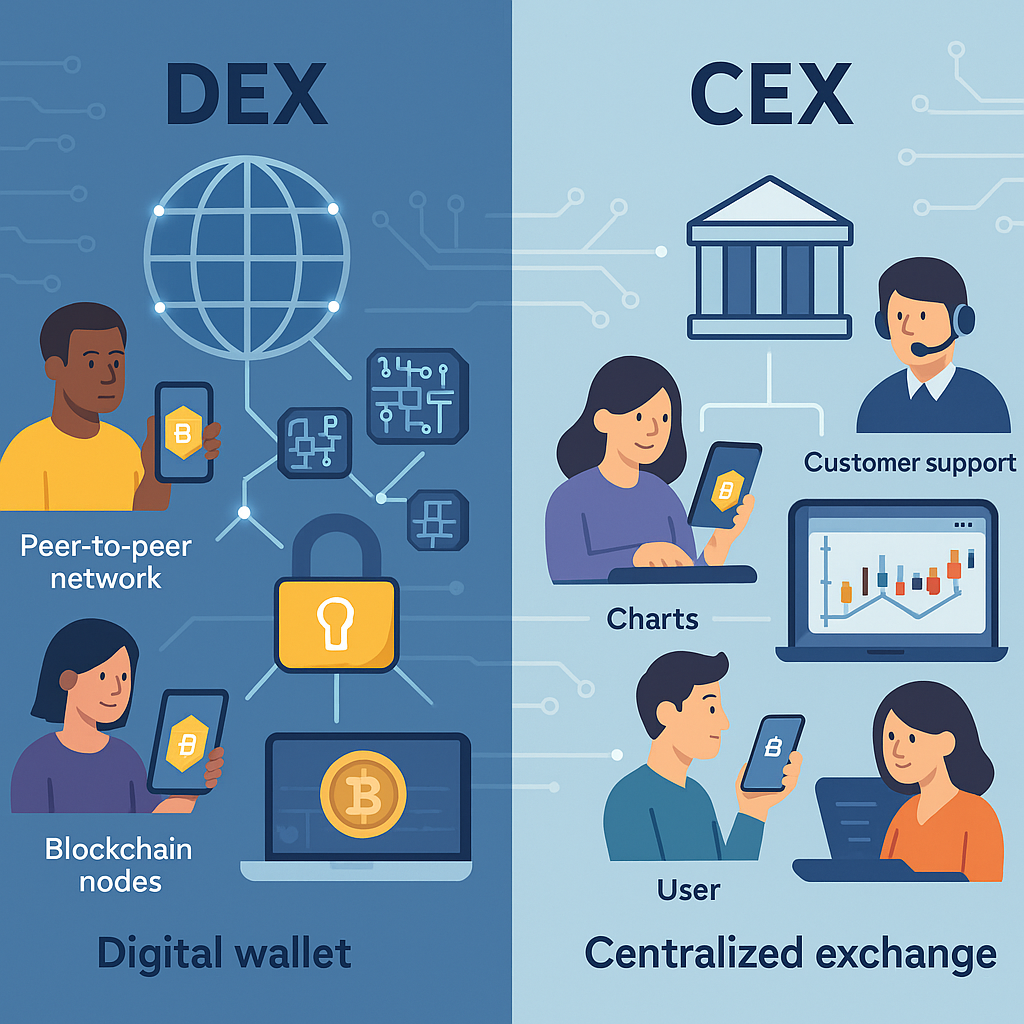When you’re trading cryptocurrencies, you’ll see two main types of platforms: centralized exchanges (CEXs) and decentralized exchanges (DEXs). Both allow you to buy, sell, and trade digital assets—but they operate in very different ways. This guide breaks down everything in a clear straightforward way so you can pick the one that suits you best.
What Is a Centralized Exchange (CEX)?
Companies run centralized exchanges managing the trading platform and user accounts. You can think of them as the traditional banks of the crypto world. You set up an account, put money in, and the exchange handles your trades. Some of the biggest names include Binance, Coinbase, and Kraken.
Benefits of Using a CEX:
- Easy for Beginners: Simple layouts work well for new users
- Quick Trades: High trading volume means buyers and sellers match fast
- Help Available: You can ask for assistance if problems come up
Downsides of CEXs:
- Less Secret: You often need to show your ID to prove who you are
- Money Not in Your Hands: The exchange keeps your cash—you don’t
- Might Get Hacked: One central point makes it a target for thieves
What Is a Decentralized Exchange (DEX)?
A decentralized exchange allows users to trade without an intermediary. Smart contracts, which are self-executing programs on a blockchain, power these exchanges. You maintain control of your assets throughout the process. Uniswap and PancakeSwap stand out as popular examples.
Benefits of Using a DEX:
- More Privacy: No need to sign up or provide personal information
- Full Control: You keep your crypto in your own wallet
- Better Security: No central point of failure or storage
Drawbacks of DEXs:
- Tougher for Newbies: The interface might puzzle users
- Slower Transactions: Less liquidity can mean trades take longer
- Limited Assistance: Customer support is often unavailable
Side-by-Side Comparison
| Feature | Centralized Exchange (CEX) | Decentralized Exchange (DEX) |
|---|---|---|
| Control | Platform holds your funds | You hold your own funds |
| Privacy | Requires identity verification | No ID required |
| Ease of Use | Very user-friendly | Can be complex for beginners |
| Security | Vulnerable to hacks | Safer due to decentralization |
| Speed | Fast due to high liquidity | May be slower with low liquidity |
| Support | Offers help and service teams | Usually no support available |
Which Option Suits You Best?
- Pick a CEX if you’re a crypto newbie, want things easy, and like having someone to call when you need help.
- Go for a DEX if you care about keeping things private, want to be in charge of your own money, and know your way around managing a crypto wallet.
